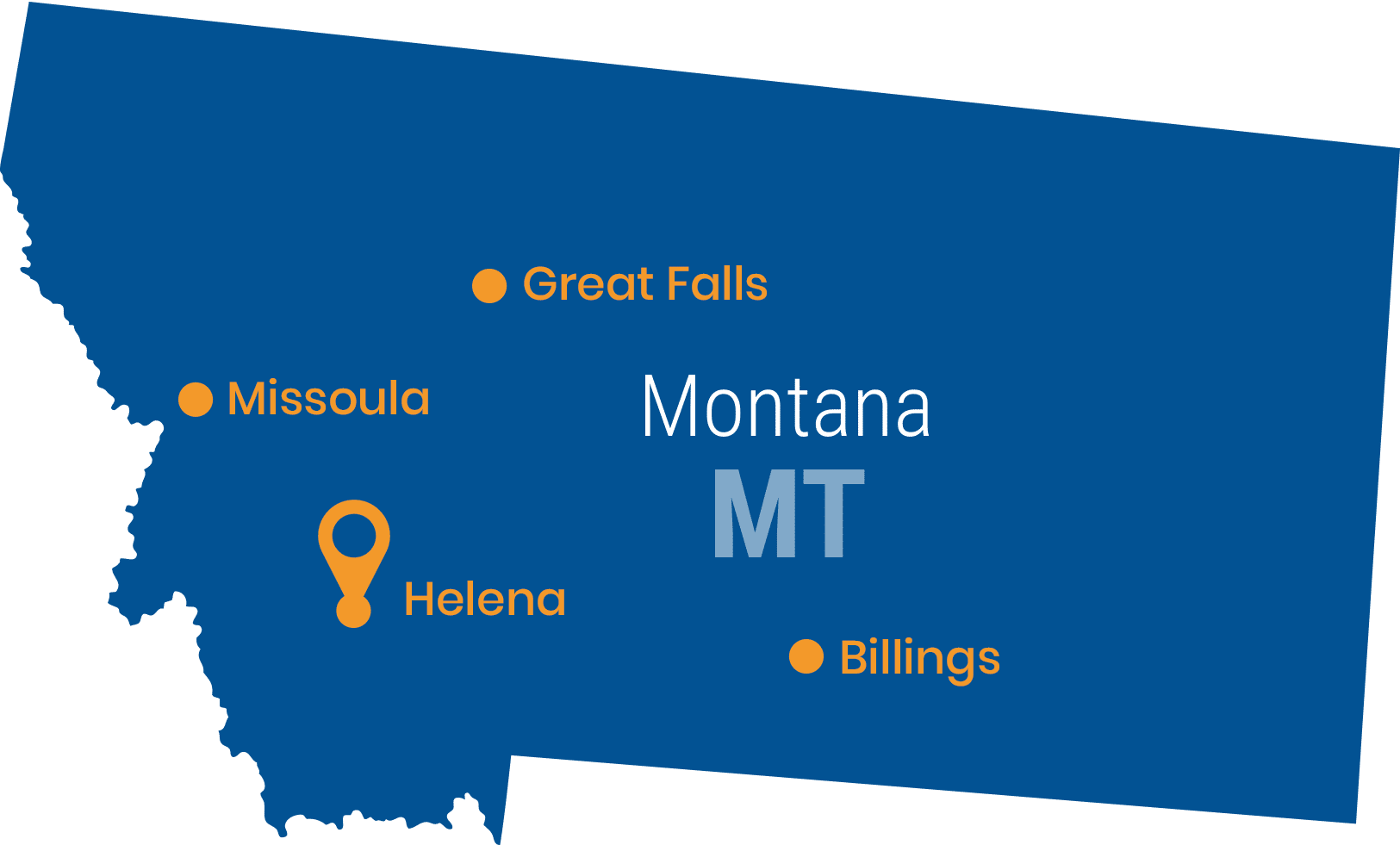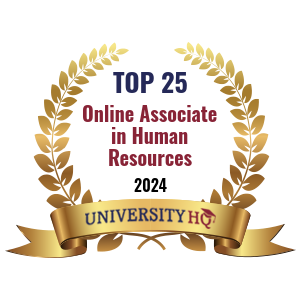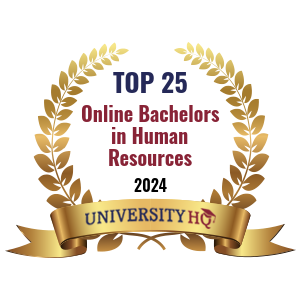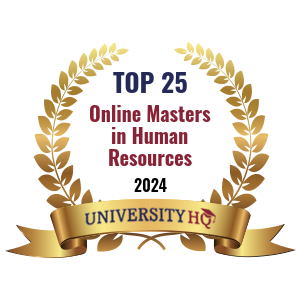What is Human Resources Management?
A human resources manager is a professional who oversees all aspects of an organization's HR activities. They are responsible for developing and implementing policies and procedures concerning employee relations, compensation and benefits, recruitment and selection, training and development, and performance management.
HR managers typically serve as the go-to person for employees with questions or issues regarding their employment. Working closely with staff and management, they ensure that personnel policies and procedures are strictly observed and that all employees are treated fairly and with dignity.
One of the most important functions of a human resources manager is managing the recruitment and selection process for the organization. This involves developing job descriptions, advertising positions, conducting interviews, and selecting job candidates.
HR managers have the additional responsibility of ensuring that employees receive proper training and development to carry out their jobs successfully, which could include developing training programs, organizing staff development opportunities, or overseeing feedback/evaluation processes.
Human resources managers play an essential role in overseeing employee relations and resolving conflicts within an organization. When necessary, they may serve as mediators in internal disputes between staff members or intervene in cases in which employees feel their rights have been compromised.
HR managers must also ensure their organization complies with all labor laws and regulations, such as properly classifying and paying employees based on law. Furthermore, this position ensures adherence with relevant health and safety laws within their workplace.

Featured Online Programs
Online Human Resources Management Education in Montana
Human Resources (HR) Management is a crucial aspect of any organization's success, especially larger organizations with many employees. In Montana, HR management is a complex process that involves compliance with state and federal laws, recruitment and retention of top talent, and ensuring that employees are well-trained and supported.
One of the key components of HR management is being familiar with the labor laws of the state in which the company operates. Montana labor laws cover everything from regulation of hours and wages, minimum wage requirements, workplace safety concerns, to employee benefits - it is therefore vitally important that HR managers in Montana become acquainted with the rules so that compliance with the law is assured.
Employee benefits are an important part of HR management in Montana. Health insurance is a significant expense for many small businesses. HR managers in Montana work with their insurance brokers to find affordable options for their employees. Montana also requires employers to provide workers’ compensation insurance, which covers employees in case of on-the-job injuries.
Montana provides HR managers with training and development opportunities they can utilize to assist their employees with growth and improve their skills through local community colleges and state universities. The Montana Department of Labor and Industry offers apprenticeship programs, on-the-job training for veterans, as well as certified training programs, which HR managers can take advantage of to foster employee growth. Those interested in earning a diploma in this field can attend a college or university in Montana, or in a nearby state through the use of the Western Undergraduate Exchange.
Online Associate (AS)

An associate degree in human resource management is a two-year program designed to provide students with the fundamental knowledge and skills required for entry-level positions in human resources departments at companies all over the state or country. The curriculum for these programs covers a range of topics such as recruitment, employee training and development, compensation and benefits, labor laws, employee relations, and performance management. Students can expect to take courses that will enable them to understand the legalities of hiring employees, manage conflicts within the workplace environment effectively, and more.
These degree programs aim to prepare students for careers focused on people within an organization by providing them with hands-on experience in managing employees. It opens up job opportunities in various industries like healthcare, government agencies, non-profit organizations, and private businesses. Graduates can find employment as HR assistants or coordinators, jobs in which they are responsible for organizing paperwork related to new hires or managing payroll records.
Human resources departments play an essential role in ensuring that organizations run smoothly through their oversight of personnel policies and procedures. For individuals who have a passion for working with people while keeping track of administrative functions involved with an organization's workforce operations - pursuing an associate degree program could be considered a great investment towards their career goals.
Online Bachelors (BS)

HR management is an integral part of any organization. It is the process of managing people and their potential in order to achieve business goals. A bachelor's degree in human resource management provides the necessary skills and knowledge to succeed in this field. Students will learn about recruitment, employee relations, compensation and benefits, training and development, talent management, and employment law, among other things.
There are many colleges that offer a bachelor's degree in human resource management. These programs provide students with a strong foundation in business principles, as well as specialized courses related to HR management.
Graduates with a bachelor's degree in human resource management can pursue careers as HR specialists or assistants in various industries such as healthcare, finance, manufacturing, technology, or with government agencies. They may also be eligible for advanced degrees, such as an MBA or master's degree in HR Management, which can further enhance their career prospects. A bachelor’s degree in human resource management equips graduates with essential skills needed for success within the field of human resources while also providing an excellent foundation to build upon through additional studies if desired.
Find Your Online Human Resources Management Program
Online Masters (MS)

A master's degree in human resource management (HRM) is designed to provide students with the knowledge and skills needed to manage HR departments effectively. These degree programs cover topics such as recruitment, employee training and development, compensation and benefits management, labor relations, and employee retention strategies. Students enrolled in these programs will learn how to develop policies and procedures that align with an organization's goals while ensuring compliance with federal laws.
Many universities offer a master's degree in HRM either online or on-campus. The curriculum of these programs often includes case studies, group projects, internships, and guest lecturers from industry professionals. These opportunities allow students to apply theoretical concepts learned in class into real-world situations. A master's degree in HRM can prepare graduates for various roles such as HR manager, recruiter, compensation analyst, or trainer within large corporations or non-profit organizations. Additionally, it can provide the foundation for those interested in pursuing a career as a consultant or working toward a doctorate degree in HRM research or teaching.
Online Doctorate (PhD)
Earning a PhD in human resource management is a significant undertaking that requires extensive research, critical thinking skills, and an in-depth understanding of human resources practices. Students who pursue this degree can expect to delve into various areas of HRM such as recruitment and selection, compensation and benefits management, employee relations, performance management, and organizational development. They will also learn about the legal frameworks governing HRM policies and procedures.
A PhD program in HRM typically takes four to five years to complete and involves coursework and independent research. Some programs may also require students to teach undergraduate courses or assist with faculty research projects. Graduates of a PhD program in HRM can go on to become professors at universities or pursue careers in consulting firms or governmental agencies focused on workforce development policies.
Students interested in pursuing a PhD in human resource management should look for accredited programs offered by reputable institutions that have strong ties to industry professionals. They should also consider the research interests of faculty members within the program to ensure alignment with their academic goals. Additionally, it's important for prospective students to assess the potential return on investment when considering pursuing such an advanced degree.
Online Certifications
Human resource management is becoming an essential part of the business world. The HR department plays a crucial role in managing employee relations, training, and development, compensation and benefits, among other things. Therefore, having a certification in human resource management can help professionals demonstrate their expertise to employers.
Getting certified in human resource management requires attending accredited colleges or degree programs that offer specialized courses related to HR practices. These courses cover topics like employment law, workforce planning, conflict resolution, and performance management. Apart from traditional on-campus classes, many institutions also offer online programs that allow students to earn certifications at their own pace.
Some of the most popular certifications for human resource management include SHRM-CP (Certified Professional) and SHRM-SCP (Senior Certified Professional), offered by the Society for Human Resource Management (SHRM). These certifications are recognized globally and require passing an exam demonstrating knowledge of HR concepts and principles. Other certifications include PHR (Professional in Human Resources), SPHR (Senior Professional in Human Resources), GPHR (Global Professional in Human Resources), and CPHR (Chartered Professional in Human Resources). Earning any of these credentials can enhance career prospects for individuals interested in pursuing a career path within the human resources field.
Become a Human Resources Manager in Montana
Human resource management is a crucial component of any organization. An HR is responsible for managing an organization's personnel, from hiring and training to developing policies and managing employee benefits. If you're interested in pursuing a career in human resources management in Montana, here are some steps to follow.
-
Step 1: Earn a Bachelor's Degree
Montana human resources managers need to start by earning a bachelor's degree in HR management or a related field such as business administration, psychology, or sociology. There are a variety of universities and colleges offering bachelor of human resource programs, so it's wise to research your options to select one that meets your career goals best.
-
Step 2: Gain Work Experience
Most organizations require that human resources managers have previous work experience before taking on managerial responsibilities. Entry-level jobs within HR management might include human resources assistant, HR coordinator, or recruiter roles; these will give you valuable hands-on experience while teaching you all aspects of human resources management.
-
Step 3: Pursue a Graduate Degree
Although a bachelor's degree in human resources management is sufficient to secure entry-level jobs, pursuing a graduate degree may give you an edge when it comes to securing a managerial position. A master's degree in human resources management or a related field can help you develop advanced skills and knowledge in the field. Some programs offer specialized courses in areas such as employee relations, labor law, and compensation management.
-
Step 4: Obtain Professional Certification
Obtaining professional certification can demonstrate your proficiency and expertise in human resources management. Some of the most recognized certifications in the field include the Professional in Human Resources (PHR) and the Senior Professional in Human Resources (SPHR), both offered by the HR Certification Institute. Other certifications include the Certified Compensation Professional (CCP) and the Certified Benefits Professional (CBP).
Find Online Human Resources Management Programs
What Can I Do with a Bachelor's in Human Resources Management?
A bachelor's degree in human resources management can prepare you for many career opportunities. Graduates can pursue roles such as human resources generalists, recruiters, compensation and benefits specialists, employee relations coordinators, and training and development managers. Degree holders can also work in various industries including healthcare, finance, government agencies, manufacturing, and non-profit organizations.
In addition to traditional HR roles, graduates with a bachelor's in human resources management may also choose to specialize in areas such as diversity and inclusion or labor relations. They could also pursue advanced degrees such as an MBA or a master's in human resources management degree to further enhance their skills and increase their job prospects.
Overall, obtaining a bachelor's in this field provides graduates with the foundational knowledge and skills needed to succeed in various HR roles across different industries. With the demand for HR professionals on the rise due to changing workplace dynamics and an increasingly competitive job market, pursuing a degree program in this specialty is a wise investment.
Potential Careers for Human Resources Management Graduates
- Police, Fire, and Ambulance Dispatchers:
Police, fire, and ambulance dispatchers are responsible for receiving emergency calls from the public and dispatching appropriate emergency services to the scene. They work in a high-pressure environment and must be able to handle stress well. Dispatchers must also be able to effectively communicate with callers and emergency personnel.
Necessary Requirements:
- High school diploma or equivalent
- Strong communication skills, both verbal and written
- Ability to remain calm under pressure
- Ability to multitask and prioritize tasks effectively
- Familiarity with computer systems and software used for dispatching purposes
- Ability to work flexible hours, including nights, weekends, and holidays
Estimated Salary
- The median annual wage for public safety telecommunicators in the US in 2021 was $46,670
- The mean annual wage for public safety telecommunicators in Montana is $49,370
- Receptionists and Information Clerks:
Receptionists and information clerks are responsible for greeting visitors, answering phone calls, providing information about the organization or business, and performing clerical duties such as data entry, filing, and scheduling appointments.
Necessary Requirements:
- High school diploma or equivalent
- Excellent communication skills, both verbal and written
- Strong organizational and multitasking skills
- Proficient in basic computer programs such as Microsoft Office
- Ability to work well under pressure in a fast-paced environment
- Previous experience in customer service or receptionist role preferred
Estimated Salary
- The mean annual wage for receptionists and information clerks in the US in 2021 was $34,600
- The mean annual wage for receptionists and information clerks in Montana is $30,970
- Human Resource Assistant (Except Payroll and Timekeeping):
A human resource assistant (Except payroll and timekeeping) is responsible for providing support to the HR department in various administrative tasks. They will assist in the recruitment process, employee onboarding, training and development, benefits administration, and other HR-related functions.
Necessary Requirements:
- High school diploma or equivalent; associate’s or bachelor’s degree in HR or related field preferred
- 1-2 years of experience in an administrative support role; HR experience a plus
- Knowledge of HR principles and practices
- Strong organizational skills with attention to detail
- Excellent communication and interpersonal skills
- Proficient in Microsoft Office Suite
Estimated Salary
- The mean annual wage for human resources assistants, except payroll and timekeeping in the US in 2021 was $46,900
- The mean annual wage for human resources assistants, except payroll and timekeeping in Montana is $41,270
- Labor Relations Specialists:
Labor relations specialists are responsible for overseeing the relationship between organizations and their employees, working to foster a productive working environment while resolving disputes efficiently and fairly.
Necessary Requirements:
- Bachelor's degree in human resources, industrial relations, or a related field
- Minimum of 5 years experience in labor relations or a related field
- Strong understanding of labor laws and regulations
- Excellent communication and negotiation skills
- Ability to work independently and as part of a team
- Experience with collective bargaining and union negotiations preferred
Estimated Salary
- The median annual wage for labor relations specialists in the US in 2021 was $77,010
- The mean annual wage for labor relations specialists in Montana is $76,140
- Human Resources Manager:
A human resources manager is responsible for developing, implementing, and managing HR policies, procedures, and programs to ensure a positive work environment and compliance with employment laws. They also oversee employee recruitment, training, benefits management, performance evaluation, and retention strategies.
Necessary Requirements:
- Bachelor's degree in human resources or related field
- Several years of experience in HR management or related field
- Excellent communication and interpersonal skills
- Strong organizational and analytical skills
- Knowledge of employment laws and regulations
- Ability to manage multiple tasks simultaneously
Estimated Salary
- The median annual wage for human resources managers in the US in 2021 was $126,230
- The mean annual wage for human resources managers in Montana is $104,300
- Chief Executive:
A chief executive is accountable for leading and overseeing all operations within an organization, serving as its highest-ranking executive and reporting directly to its Board of Directors. Their primary duties include making sure it remains financially sound while meeting its goals and objectives as well as adhering to applicable laws and regulations.
Necessary Requirements:
- Bachelor's degree in business administration or a related field (Master's degree preferred)
- Extensive experience in a leadership role, preferably in a similar industry or organization
- Proven track record of success in strategic planning, financial management, and team leadership
- Excellent communication, interpersonal, and negotiation skills
- Strong analytical and problem-solving abilities
- Knowledge of relevant laws and regulations in the industry
Estimated Salary
- The mean annual wage for chief executives in the US in 2021 was $246,440
- No available median annual wage for chief executives in Montana, but general and operations managers earn $96,960
- Public Relations Manager:
As a public relations manager, you will be responsible for creating and maintaining a positive image of the company by developing and executing effective communication strategies. You will work closely with internal teams and external stakeholders to build and maintain strong relationships with the media, customers, investors, and other key audiences.
Necessary Requirements:
- Bachelor's degree in public relations, marketing, communications or a related field
- Proven experience as a public relations manager or similar role
- Excellent communication skills, both written and verbal
- Strong networking abilities and established relationships with media
Estimated Salary
- The median annual wage for public relations managers in the US in 2021 was $119,860
- The mean annual wage for public relations managers in Montana is $90,160
- Insurance Claims and Policy Processing Clerks:
An insurance claims and policy processing clerk is responsible for assisting in the processing and handling of insurance claims and policy documents. They work closely with insurance adjusters, underwriters, and policyholders to ensure accuracy and timely processing of claims and policies.
Necessary Requirements:
- High school diploma or equivalent
- Strong attention to detail and organizational skills
- Excellent written and verbal communication skills
- Ability to work independently as well as part of a team
- Knowledge of basic computer programs such as Microsoft Office
- Previous experience in an administrative or customer service role preferred
Estimated Salary
- The mean annual wage for insurance claims and policy processing clerks in the US in 2021 was $47,840
- The mean annual wage for insurance claims and policy processing clerks in Montana is $40,830
- Business Management
- Business Administration
Search All Programs
